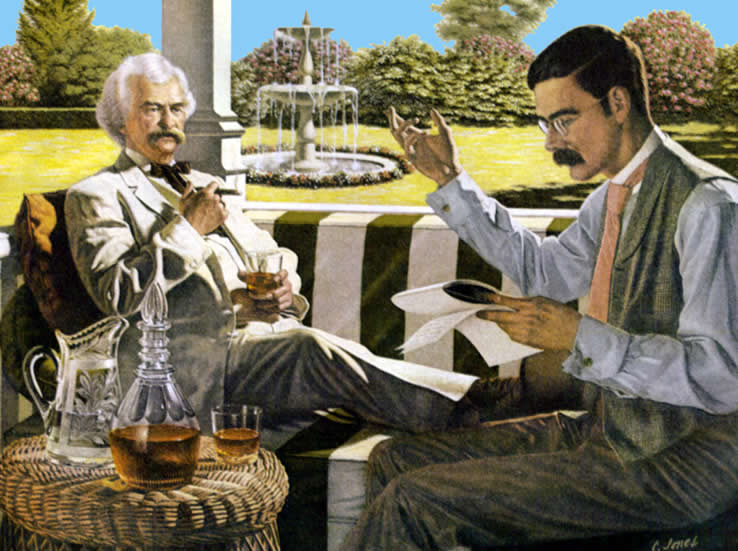Rudyard Kipling, a name that resonates deeply in the world of literature, is often associated with timeless works that have shaped modern storytelling. His contributions to the literary world have left an indelible mark, influencing generations of readers and writers alike. Through his unique narrative style and profound understanding of human nature, Kipling continues to inspire and captivate audiences worldwide.
Born in the heart of colonial India, Rudyard Kipling's life and works reflect the complexities of a world divided by cultural boundaries. His ability to capture the essence of both British and Indian cultures has made him a pivotal figure in literary history. From his early days in Bombay to his later years in England, Kipling's journey as a writer was nothing short of extraordinary.
This article delves into the life and works of Rudyard Kipling, exploring his legacy as "The Stranger" who bridged cultures and brought diverse worlds together through his words. By examining his key works, themes, and the impact of his writings, we aim to provide a comprehensive understanding of why Kipling remains a revered figure in the literary world today.
Read also:Lebron James Toe A Comprehensive Guide To Understanding And Addressing The Issue
Table of Contents
- Biography of Rudyard Kipling
- Key Works and Themes
- Colonial Perspective in His Writing
- Literary Impact and Legacy
- Awards and Recognition
- Controversies Surrounding Rudyard Kipling
- Influence on Modern Literature
- The Stranger: Kipling's Role in Bridging Cultures
- Famous Quotes by Rudyard Kipling
- Conclusion and Call to Action
Biography of Rudyard Kipling
Rudyard Kipling's Early Life
Rudyard Kipling was born on December 30, 1865, in Bombay, India, to British parents. His early years were spent in India, a period that would significantly influence his later works. Below is a brief overview of his personal life:
| Full Name | Rudyard Joseph Kipling |
|---|---|
| Birth Date | December 30, 1865 |
| Birthplace | Bombay, India |
| Death Date | January 18, 1936 |
| Occupation | Author, Poet, Journalist |
Key Milestones in His Career
Kipling's career as a writer began in earnest during his teenage years. By the age of 23, he had already published several collections of short stories and poems. His early success laid the foundation for a prolific career that spanned several decades.
Key Works and Themes
Themes in Rudyard Kipling's Literature
Throughout his career, Kipling explored a variety of themes, including colonialism, identity, and the human condition. Some of his most notable works include:
- The Jungle Book (1894)
- Kim (1901)
- Gunga Din (1890)
Analysis of Key Works
Each of these works delves into the complexities of human relationships and the cultural dynamics of the colonial era. For instance, The Jungle Book explores themes of belonging and identity, while Kim examines the intersection of Eastern and Western cultures.
Colonial Perspective in His Writing
Understanding the Colonial Context
Rudyard Kipling's writing often reflects the colonial context of his time. His works are imbued with a deep understanding of the challenges and opportunities presented by the colonial era. This perspective has both praised and criticized over the years.
Impact on Modern Views
Today, scholars continue to debate the implications of Kipling's colonial perspective. While some argue that his works perpetuate stereotypes, others believe they offer valuable insights into the complexities of colonial life.
Read also:Noah Zimmern A Rising Star In The World Of Music And Entertainment
Literary Impact and Legacy
Contributions to Literature
Rudyard Kipling's impact on literature cannot be overstated. His innovative narrative techniques and vivid characterizations have influenced countless writers. His ability to blend storytelling with cultural commentary has earned him a place among the greats of English literature.
Legacy in Modern Times
In contemporary times, Kipling's legacy continues to inspire new generations of writers and readers. His works remain relevant, offering timeless lessons about human nature and the world we live in.
Awards and Recognition
Recognition for His Contributions
Rudyard Kipling's contributions to literature have been widely recognized. In 1907, he became the first English-language writer to receive the Nobel Prize in Literature. This achievement underscored his status as a literary giant.
Other Honors
Throughout his life, Kipling received numerous accolades, including honorary degrees from prestigious universities. His works have been translated into multiple languages, further cementing his global influence.
Controversies Surrounding Rudyard Kipling
Debates Over His Works
Despite his many achievements, Rudyard Kipling's works have not been without controversy. Critics have accused him of promoting imperialistic ideologies, a charge that continues to spark debate among scholars and readers alike.
Addressing Criticisms
In response to these criticisms, supporters of Kipling argue that his works should be viewed within their historical context. They contend that his writings offer valuable insights into the complexities of colonial life, even if they reflect the biases of the time.
Influence on Modern Literature
Enduring Relevance
Rudyard Kipling's influence on modern literature is profound. His works continue to inspire writers across genres, from fantasy to historical fiction. His ability to create rich, multidimensional characters has set a standard for generations of storytellers.
Adaptations and Interpretations
Over the years, Kipling's works have been adapted into films, plays, and other forms of media. These adaptations have introduced his stories to new audiences, ensuring that his legacy endures.
The Stranger: Kipling's Role in Bridging Cultures
Bridging Cultural Divides
Rudyard Kipling's role as "The Stranger" who bridged cultural divides cannot be overstated. Through his writings, he explored the complexities of cultural identity and the challenges of cross-cultural communication. His ability to capture the nuances of both British and Indian cultures has made him a unique voice in literary history.
Lessons for Today's World
In today's increasingly interconnected world, Kipling's works offer valuable lessons about cultural understanding and empathy. His writings remind us of the importance of bridging divides and fostering mutual respect between diverse communities.
Famous Quotes by Rudyard Kipling
Words of Wisdom
Rudyard Kipling's writings are filled with profound insights and timeless wisdom. Below are some of his most famous quotes:
- "If you can keep your head when all about you are losing theirs..."
- "East is East, and West is West, and never the twain shall meet..."
- "The glory of the garden, the God of the garden, that is the greatest gift."
Reflections on Life and Literature
These quotes reflect Kipling's deep understanding of human nature and the world around him. They continue to resonate with readers, offering guidance and inspiration in both personal and professional spheres.
Conclusion and Call to Action
In conclusion, Rudyard Kipling's contributions to literature have left an indelible mark on the world. His ability to bridge cultural divides and explore complex themes has earned him a place among the greats of English literature. As we continue to grapple with the challenges of our modern world, Kipling's works offer valuable lessons about empathy, understanding, and the power of storytelling.
We invite you to share your thoughts and reflections on Rudyard Kipling's legacy in the comments below. Have his works influenced your understanding of literature and culture? Let us know! Additionally, feel free to explore other articles on our site for more insights into the world of literature and beyond.
References:
- Kipling, Rudyard. The Jungle Book. Macmillan, 1894.
- Orwell, George. "Rudyard Kipling." Horizon, 1942.
- Wilson, Angus. Rudyard Kipling: His Life and Works. Penguin, 1978.


